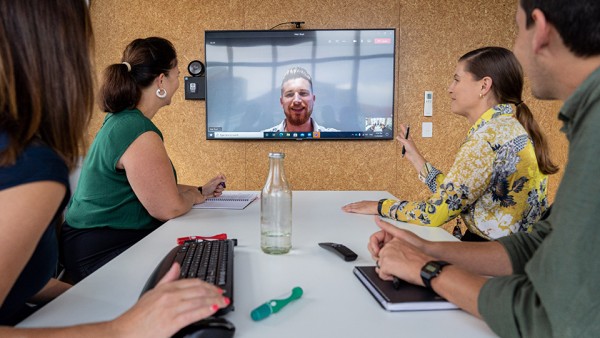
In the post-pandemic world, making sure your business is relevant and provides customers with value is more important than ever. A business is no longer just the product or service. Customers care about what you stand for — and so does your team! People want to buy from, and work for, businesses that align with their values.
Corporate Social Responsibility (CSR) is nothing new. What is new is the access that people expect to have to your business' beliefs and how you stand behind your policies. It is no longer enough to say the right things — businesses are expected to live by their values.
Supporting the local community shows that you are committed to the people that support your business and a fantastic way to invest in your staff. Local philanthropy is also beneficial to your business and shouldn't be thought of as a cost centre. Here are ten ways in which supporting a local cause will help grow your business.
- Boost Brand Reputation
- Increase Customer Loyalty
- Attract & Retain Talent
- Drive Local Economic Growth
- Strengthen B2B Relationships
- Improve Public Relations
- Empower Your Team
- Unlock Tax Advantages
- Strengthen Resilience In Tough Times
- Create A Legacy Of Leadership
1) Boost Brand Reputation
Trusted brands have a well-developed CSR strategy. More importantly their CSR aligns with their business values and makes use of their skills. Patagonia donates 1% of its sales to environmental initiatives. Cisco provide IT education to millions of individuals. Microsoft's Tech for Social Impact initiative provides technological solutions to tackle societal challenges.
According to the 2017 Cone Communication CSR Study1, 92% of consumers have a more positive image of companies that support social issues. In 1993, this figure was at 85%, showing clear growth in the impact on your brand's reputation that a positive CSR can have.
2) Increase customer loyalty
Retaining customers is one of the most cost-effective ways to increase profit. Many studies have explored this, with the cost of a new customer compared to a retained one being anywhere from five to 25 times as much 2.
The 2020 Edelman Trust Barometer3 found that people grant trust based on competence and ethical behaviour. The research found that "ethical drivers such as integrity, dependability and purpose drive 76 percent of the trust capital of business, while competence accounts for only 24 percent". It is clear that by showing your business is dedicated to ethical behaviours has a major impact on the bottom line.

Shining Peak have their 5% project - donating 5% of all beer sales to local community projects
3) Attract & Retain Talent
The proportion of a workforce that identifies as millennial or gen-Z is significant. According to a 2023 John Hopkins study4 44.7% of the workforce identifies as millennial or gen-Z with estimates showing this growing to 60% by 20355. And with technology moving faster than ever, attracting the younger generations will become more valuable.
Deloitte's 2025 gen-Z and millennial study6 found that these generations want "purpose driven work, or the resources to drive change outside of work. " 89% of Gen-Z and 92% of millennials state that purpose is important to job satisfaction and well-being. For a large group, this idea of purpose is directly related to having a positive impact on society.
4) Drive local Economic Growth
A healthy local economy is beneficial to everyone. To business owners, staff and the community. Business philanthropy is often seen as fighting against profit, but it doesn't have to be that way. Finding a way to use your business to support local social issues can in fact increase profits, while also having a positive impact on communities.
Going beyond the traditional concept of CSR, 'Creating Shared Value' (CSV) shows how social impact and profit can go hand-in-hand 7. Where CSR is about redistributing wealth, CSV is about relooking at your business model to find where you can socially responsible while also growing your business.
5) Strengthen B2B Relationships
Consumers are attracted to businesses that align with their beliefs. The same is true in the B2B environment. While a key driver in B2B purchasing decisions is price, it is becoming more common for a CSR policy to be a deciding factor in the procurement process.
If your business is intending to sell your product or services to another business, demonstrating your CSR policy may well be part of their procurement process. This is especially common for sustainability, with the consideration of ethical sourcing and Life cycle assessment8.
6) Improve public relations
If you want your business to grow, good enough is no longer good enough. You need to demonstrate you care about social issues and put your money where your mouth is.
Good PR is great PR. It doesn't have to be world changing, but it does have to be genuine. By supporting and making a difference to social issues, you have good news stories to tell your customers and your prospects. As an example, according to Nielsen's 2015 Global Sustainability Report9 consumer brands that demonstrated a commitment to sustainability grew by 4%, while those without a commitment grew by 1%. Another study by Blueyonder found that "65% of consumers are willing to pay more for sustainable products" with almost 20% willing to pay a premium of more than 10%.10
7) Empower your team
One of the most common ways for a business to provide opportunities for their employees to give back is by creating volunteering days i.e. one day off each year to volunteer for a cause. The cost to the business is one day's work — however the lasting impact it has on the employee and the community is immeasurable.
94% of volunteers report an enriched sense of purpose and 89% report an expanded worldview11. And there are benefits for your business too; 71% of employees who volunteer through a work scheme report feeling better about their employer. It produces healthier employees, who are more engaged and often develop their professional skills further.

Setting aside time for your team to organise volunteering days is a fantstic and easy way to give back.
8) Unlock tax advantages
While this may not be the most altruistic reason to give - it cannot be denied that their are tax benefits to donating to a cause. Your donation can be offset against your taxable income and help reduce your tax bill. To find out more about this, speak to your accountant.
9) Strengthen resilience in tough times
It is easy to assume that everything will continue as it is, in a status quo, with you being in control of your business and the market you exist in. We all recently found out this is not true. While uncommon, occasionally global events take over and remove your control. Local or even personal events can have a major impact.
Having a solid CSR policy in place, that has built up your brands reputation and your customers' trust in your business can help you weather such storms. Customers are more likely to get behind and support a business that has done the right thing for their community and help you through the tough times.
10) Create a legacy of leadership
In the not-for-profit space, we often talk about leaving a legacy. Normally this is a euphemism for leaving a gift in a will. When we talk to business leaders about leaving a legacy, it is very different. It isn't about what is left behind when you die, and instead is about leaving your mark on your business. Creating a positive culture that drives the business forwards.
"Leaders who focus on CSR not only create positive change in society but also build trust and loyalty with their stakeholders. By making CSR a central part of their business, leaders can create a culture of responsibility that helps their company grow while benefiting the world."12
In summary - CSR shouldn't be an afterthought. It should be a key pillar in your business' strategy. It creates trust in your brand, engages your employees, attracts the best talent and gives your business long-term resilience.
Ready to start? Talk to us at the Taranaki Health Foundation about how your business can make a meaningful local impact. We are dedicated to local healthcare and can provide you with all the tools you need to get your CSR policy setup. Whether it is volunteering days, a company fundraiser or a direct donation, we can work with you to create a strategy that works for you and the community.
Footnotes
1: https://www.cbd.int/doc/case-studies/inc/cs-inc-cone-communications-en.pdf
2: https://hbr.org/2014/10/the-value-of-keeping-the-right-customers
3: https://www.edelman.com/trust/2020-trust-barometer
4: https://imagine.jhu.edu/blog/2023/04/18/gen-z-in-the-workplace-how-should-companies-adapt/
5: https://www.visualcapitalist.com/charted-how-generations-will-shape-the-workforce-by-2035/
6: https://www.deloitte.com/content/dam/assets-shared/docs/campaigns/2025/2025-genz-millennial-survey.pdf
7: https://www.isc.hbs.edu/creating-shared-value/csv-explained/Pages/default.aspx
8: https://www.ioscm.com/blog/the-role-of-procurement-in-sustainability-and-corporate-social-responsibility/
9: https://engageforgood.com/2015-nielsen-global-sustainability-report/
10: https://blueyonder.com/resources/consumer-sustainability-survey
11: https://www.unitedhealthgroup.com/content/dam/UHG/PDF/2017/2017_Study-Doing-Good-is-Good-for-You.pdf
12: https://kapable.club/blog/leadership/leadership-and-corporate-social-responsibility